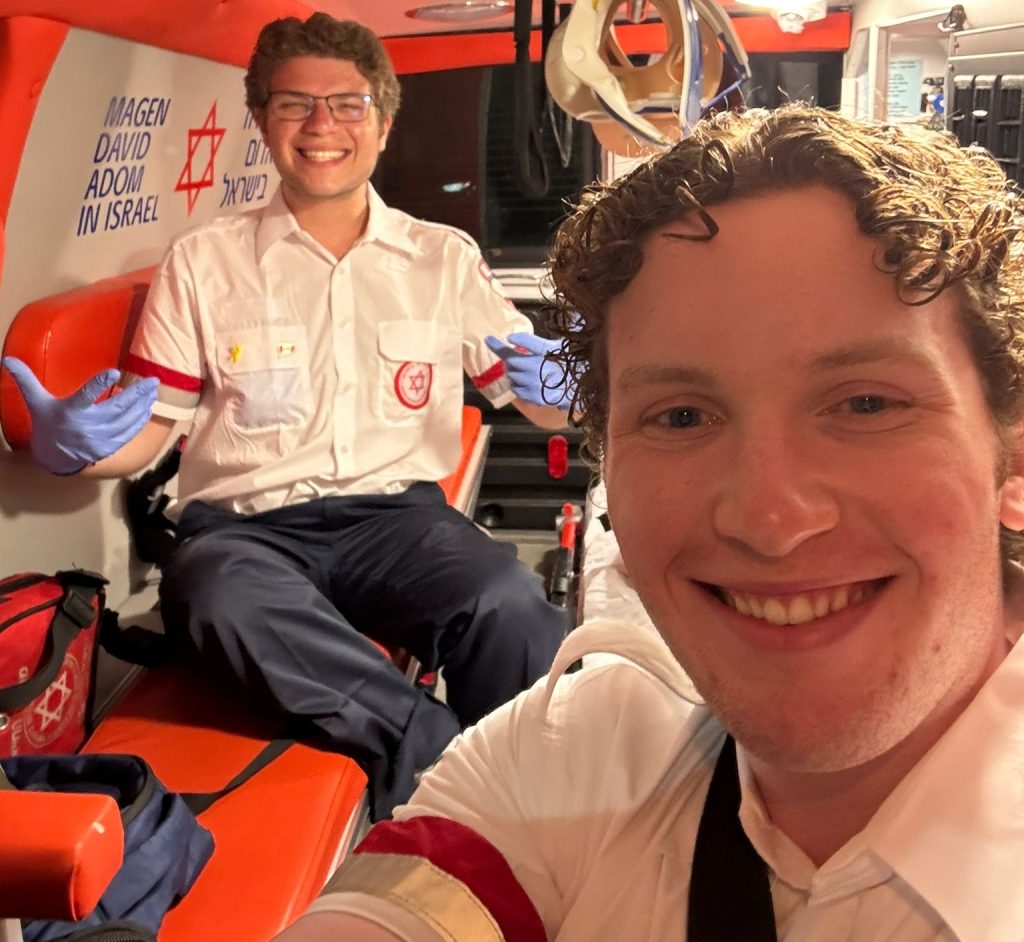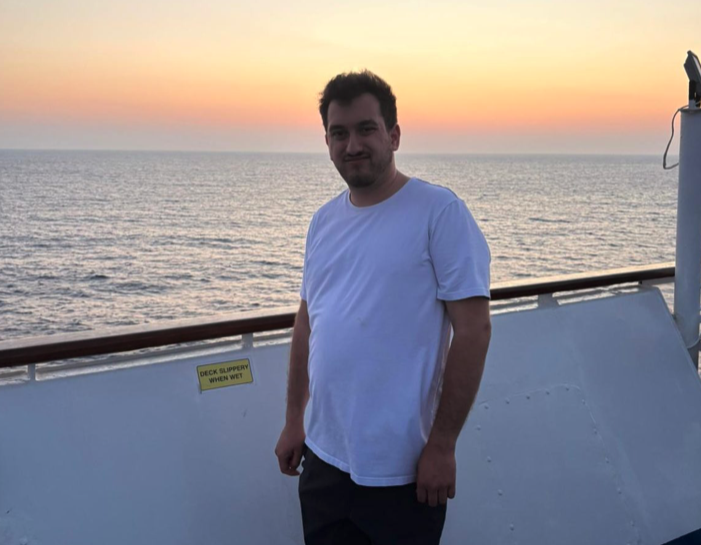The cruise ship was three hours into its Mediterranean voyage. It carried around 1,500 young adults as passengers, enjoying themselves in the summer sun. They had all the food they could eat, plenty of drinks, music, and dancing. The party had only just started.
And then a rocket was intercepted overheard. The ship wasn’t in any danger, but the passengers could see the jet streams in the sky above.
The cruise, of course, was not for pleasure. It was a ship on a mission, escorted by Israeli Navy vessels, ferrying participants from Birthright and other programs from Israel to Cyprus, where they would fly to their respective homes.
Philip Lerner, 24, was one of those participants. A data scientist from Thornhill, Ont., he was in Israel for a volunteer trip through Olami Toronto. Speaking to The CJN from an airport in Cyprus on June 19, he said it was a once-in-a-lifetime experience, and one that he never wants to experience again. The Navy escort, he said, was especially jarring.
“It was like, ‘Wow, who am I to deserve all this type of protection? I just came here for a one-week volunteer trip. I’m not exactly royalty,’” he said. “But the other part was, just the fact that they felt it was necessary, made me feel a little bit more on edge as well. It’s like, ‘this is actually a risky journey I’m making.’ It’s easy to forget that when you’re surrounded by bars and pool parties. The rocket is a decent reminder.”
The voyage, which Lerner and his friends called the ‘Jew Cruise’, took around 18 hours, with three or four passengers to a room. They had bunk beds available, but the passengers on the whole did very little sleeping. Lerner estimates he slept only around five hours, and said many of his friends slept for only three.
In a way, lack of sleep was the kind of outcome he feared when he decided to embark on the ship–but for very different reasons. He and his cohort had been told about the ship the night before, and would have to leave at 6 a.m. to make it. They were given little other information, and had only a few hours to make a decision.
“At that time, we were not 100 percent sure what type of ship it was. A part of me was really nervous because I was like, ‘Wait, am I going to be sitting on the floor of a cargo ship for 15, 18 hours? I did not sign up for this,’” he said. “But my top priority is getting out of the country. Because it was getting really insane.”
However, the troubles didn’t end once the group made it to Cyprus. Lerner and many others were supposed to fly from Cyprus to Poland to New York. They arrived at the airport at 1 a.m. local time, boarded the plane at 5 a.m., and sat on the tarmac for three hours. At 8 a.m., they were ushered off the plane. From what Lerner heard, the rockets in the region were messing up the navigation systems of the planes, so the pilots didn’t feel comfortable flying.
At that point, the program organizers changed strategies. They told the participants to book their own ways home and offered them up to $3,000 in reimbursement. Lerner flew from Cyprus to Egypt, and from there to Toronto, where he landed June 20. With $3,000 in hand, he looked into flying first class, but a few of his friends had already snagged the last few first-class seats.
Even without the first-class seats, though, Lerner is grateful that Birthright and Olami took such good care of him.
“Birthright, they really pulled through. I was expecting this to be a cargo ship, a really uncomfortable ride. It was anything but. It was honestly a lot of fun,” he said.
“They put us up in what looked like a four-star hotel…I was like, ‘You know what? With everything we went through, we deserve this.’ Obviously I was extremely grateful that they pulled through in such short notice.”
As Lerner and 1,500 other young adults left Israel by party boat, other Canadians were not as lucky.
Avery Rotstein, 19, was in Israel volunteering with Magen David Adom through Masa Israel Journey. His program ended on June 15, three days after the first missile strikes from Iran. That day, he left the Masa hotel in Tel Aviv to stay with his cousins in Ra’anana, about 20 minutes north.

A few days later, he heard about the cruise ship, and even saw a friend post pictures from a resort in Cyprus, as he remained stuck in Israel.
“My initial reaction was sort of frustrated. Like, why did the [Birthright] kids get first priority?” he said. “It’s not really a fair situation, right?”
In particular, Rotstein wondered why Masa had not arranged for him and his cohort to be on the ship.
“If Olami could get on that boat with [Birthright], why couldn’t Masa do anything?” he said, adding that he knows Masa has their reasons for making the choices they do. But even so, he said, it was difficult to feel left in the lurch when so many other people were leaving.
“It’s sort of uncomfortable. No one really knows a lot right now. It’s complicated. It’s stressful.”
Tal Bar-On Morali, public relations manager for Masa, said that Masa, like every other organization, has its own decision-making process. Because they are affiliated with the government of Israel and the Jewish Agency, they must follow the decisions of those entities.
As of this writing, Bar-On Morali could not share any details with The CJN for security reasons. However, she was able to confirm that Masa had plans for participants who wished to leave within the coming days, and that Rotstein was included in them.
“At the moment when this war began, we looked at every possible solution that we can think of. And we found that the best solution is the one that we have right now on the table, and we went with what seemed to be the safest way for us,” she said.
Although Rotstein was frustrated watching videos from the Birthright cruise, he greatly enjoyed his experience with Masa, and feels secure with his family in Ra’anana.
“It’s probably scarier for my family and my loved ones back home to watch the headlines and hear the stories than it is to be here. I feel very lucky, I feel very safe right now. There’s not a ton of urgency for me to leave, although I would like to leave,” he said.
“I look at Israelis who are less fortunate, I look at other volunteers and tourists who are less fortunate. Those who came for the Pride Parade, I’ve heard estimates of about 100,000 people. Tourists who are stuck here don’t really have a place to go. You know, I’m pretty well off all things considered.”







